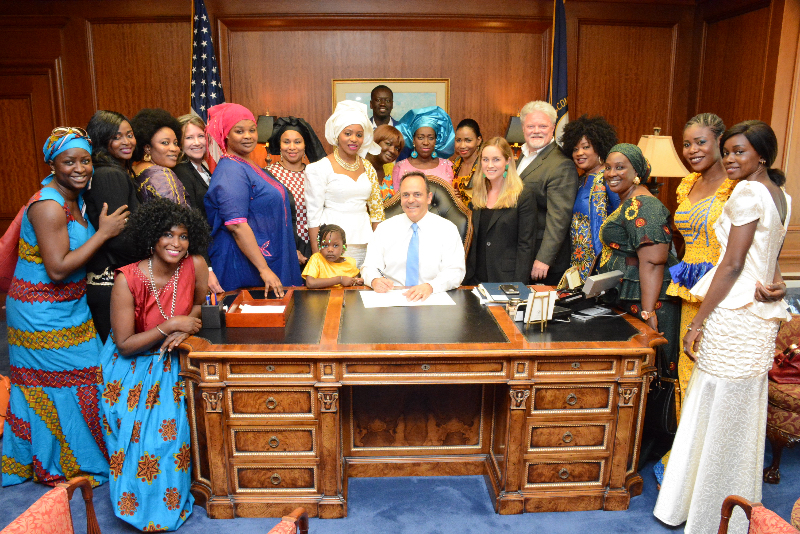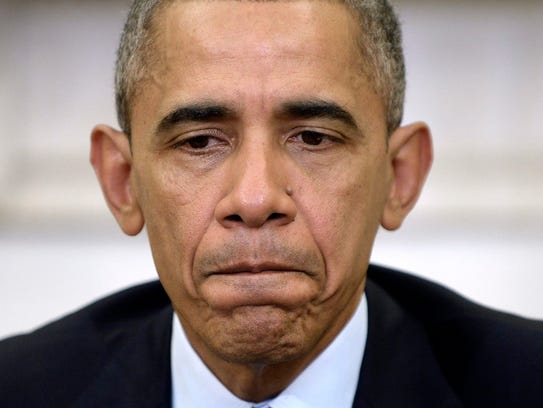In response to yesterday's post on the white supremacist rally in Sacramento and the resulting free speech implications, a reader of The Daily Face Palm offered a thorough critique. It is well-written and it is also reasonably fair to most of the arguments I made. Ultimately, however, I find myself unmoved for reasons that will soon become clear. I still think people's right to free speech should be protected, even when they say appalling things that I wish no one truly believed. And I still believe initiating violence against such people, whether done by individuals or the government, is not defensible.
The author of the critique is Gus Voss who keeps the
This is Progress? blog. I'm sharing the critique with you so that you can make your own decision about the appropriate position on free speech.
In this piece, I won't respond to all the counterarguments offered, but several of the issues seemed worthy of comment. We'll proceed in the same order as the article.
Who Initiated Violence?
In his critique, Voss begins by taking issue with the evidence I used to assign fault to the counter-protesters for initiating violence (emphasis added):
Despite the narrative of chaotic interplay between the two opposing groups, the piece concludes that the anti-fascists initiated the violence because one organizer said she supported a militant direct action against the fascists and because one of the organizations who organized the counter protest is called "By Any Means Necessary"—which is clearly a reference to Malcolm X, who thought that violence was an appropriate means of self-defense. Militant direct action is not, per se, violent. If it were, then the DFP piece contradicts itself. Whenever white supremacists rally in public, wearing insignias of hate (and of militant white supremacists like the Nazis), it is a militant direct action. If it is the case that a mere militant direct action means you are inciting violence, then the white supremacists initiated the violence by holding a public rally.
It's true, of course, that the word "militant" technically has multiple meanings, and not all of them necessitate violence. On this much, we agree. As the word is generally understood, however, violence is absolutely part of the connotation. This is why, for example, the Obama Administration regularly uses the term militant to describe any unknown military-age male who is assassinated in a US drone strike. The purpose of this phrase is obviously to imply the victim was a violent person who deserved what they got, not just an energetic protester. Like it or not, this is how the term militant is used today.
So if one describes their own group as militant, it stands to reason they know exactly how that is going to be interpreted. In this case, one of the counter-protesters volunteered that description for their action. It does not take any serious leap to get from there to assume that a militant protest intended to use violence.
Incidentally, however, all of this is slightly beside the point. Later on in Voss's piece, he offers his own summary of the sequence of events that took place in Sacramento as he understands them:
- Fascist white supremacists rallied on/near the state house steps.
- Antifascists surrounded the protesters and began shouting insults. The white supremacists responded in kind.
- Antifascists started chucking rocks, sticks, and bits of concrete at the white supremacists.
- The white supremacists fled, attacking antifascist protesters with knives and clubs on their way out.
- Police didn't do much to stop the confrontation.
Step three in that list is the initiation of force, and it was done by the counter-protesters (antifascists). So, definitions aside, we don't disagree on the sequence of events that took place. No one is contending that the counter-protesters started it--they did--all we're debating is whether they were justified in doing so.
Inherently Violent?
Next, Voss argues that white supremacist ideology advocates for genocide of non-white people. Thus, he argues it is inherently calling for violence.
On the first point, I don't think I'd disagree with him. Whether you would catch these people explicitly advocating for such things in public is another question. It's a likely implication of the
leader's [Matthew Heimbach's] remarks as he envisions a world of ethnically segregated nation-states and appears to have nothing but contempt for every non-white group (and a few groups that include white people as well). But again, having not trolled through the group's internal writings, they don't appear to explicitly call for genocidal violence.
While this could seem like a minor point, it's actually somewhat significant. It means that the government now has to be charged with inferring what a group's true intentions are in order to make a determination of whether they are in fact inherently violent. Maybe in this case, that means they get it right and use it as a basis to deny speech.
But then what's to stop the government from using the same premise on Black Lives Matter next week? Obviously, no one could make a credible case that they advocate for genocide. But I'm sure we've all seen the loop footage that Fox News dredges up for every segment it does on BLM where some random protesters chant "F--- The Police" or something about dead cops. That certainly sounds like a call for violence. And it's against police!
Now, in reality, I know BLM is not a violent group. But if we assume that government is likely to abuse its power to crackdown on minority voices, the same basic rationale for suppression advanced above (the idea of inferring violent intentions) seems like it could be readily twisted against other groups with dissimilar ideologies. The criminal justice system already acts with extraordinary deference to police concerns as it is; if it had a plausible legal tool at its disposal to block groups like BLM, we should assume at least some judges would take advantage of the opportunity.
Within this section, Voss also suggests that I have misunderstood existing jurisprudence on the topic. I'm open to the possibility I have this wrong. I'm not a lawyer and frankly, I don't have time to research case law every time I write a new post. I also think it is inappropriate to take established Supreme Court rulings as a guidepost for how our laws ought to work, which is my primary interest; it merely tells us how they work right now.
With all that said, I actually think he's wrong about this. Here's what he said in full:
The very notion that a white supremacist organization can rally without "imminent calls for violence and destruction" defies First Amendment jurisprudence and simplifies when a public assembly is lawful. White supremacy, as a political ideology, advocates for the genocide of all non-white people. Every public display of white supremacy is a call for violence and destruction. Furthermore, the actual test for whether an assembly is protected under the First Amendment is more strict than calling for imminent violence; an intent by the members of the assembly to disturb the peace is all that is required to amount to unlawful assembly and losing First Amendment protection. And, if onlookers are reasonably fearful of the breakdown of the peace, the assembly loses its legal protections.
The problem is that there is a case that is directly related to the present incident, and it was decided squarely in favor of allowing Nazi-sympathizers the right to assemble. The facts in the case were actually far more extreme than the present ones--the group wanted to march wearing swastikas through a town with numerous Holocaust survivors. And even in that case, the Supreme Court ruled that they had a right to do so. You can read a
useful write-up on that episode here. And I will post an update here if Voss explains how this case was superseded to permit restrictions later.
The Genocide Rule
Voss's proposed solution for the predicament is a rule whereby the government doesn't have to grant permits for rallies to groups that advocate genocide. Seems straightforward, but is it? Here's Voss:
An arbitrary decision is that which is based upon random choice or personal whim, rather than with regard to rules or a system. By arguing that the only way for a government to limit white supremacist protections under the First Amendment is to act arbitrarily. Hmm. Perhaps the State could find a rule that would exclude this protection: the government will not grant permits to organize to organizations advocating for genocide. That's sooooooooooo arbitrary, right?
Well, we still have to clear the hurdle that at least this group, doesn't appear to explicitly call for it.
But assuming we can resolve that, we also need to have a compelling definition of genocide. I'm not actually being flippant here. We live in a society where our politicians call for violence (bombing other countries) all the time. Frequently, we also hear people calling for loosening up the rules of engagement (so more fighters--and civilians--can be killed), and we've heard at least one rhetorical flourish hint at the possibility of using nuclear weapons in the Middle East. These actions wouldn't literally kill every Arab or Alawite or Muslim. But the ongoing War in Iraq is credited with causing the deaths of more than 1 million people, so we're not dealing with small numbers.
Presumably, our politicians would have the good sense not to brand the campaign as literally genocidal--I'm sure even a nuclear launch would be justified in the name of "stability". But when the war gets large enough, I submit the end result would look pretty much the same. As another consideration, the State of Israel oppresses Palestinians all the time, and regularly engages in disproportionate violence against them, killing many people. Yet it has many ardent supporters. Does Zionism or simply support for the Israeli government now constitute advocating genocide?
I suspect a reasonably clear definition for genocide could be found (and may exist already), and it would probably exempt the items I suggested above. But that's kind of the point. People, and especially politicians in the US advocate for an unimaginable amount of violence every day. They don't do so in those terms, of course, but it is the necessary implication of their policies. Is there a compelling way to pick and choose which types of advocacy for mass murder are the acceptable ones? I, for one, would be hard-pressed to answer that in the affirmative.
Existing Limits
Voss later makes the point that there are already existing limits on the First Amendment right now. This is an appropriate counter to a rhetorical flourish I offered in the original post. As a reminder, here's what I said before:
No matter what approach we try, the downsides of restricting the First Amendment are going to outweigh any benefits. The First Amendment exists to protect minority and unpopular viewpoints, some of which will have merit and some of which will not. But it has to be an all-or-nothing decision. If the government can pick and choose between which types of speech are allowed, then free speech might as well cease to exist.
And Voss's reply:
This argument is nonsensical. The First Amendment has plenty of limits. For instance, it would be illegal for me to publish a false statement about Eric Schuler if that statement could produce any damage to Eric. The government has decided that this type of speech—false statements resulting in damages—is not allowed. According to the DFP's maxim, there is therefore no freedom of speech. That's why there is no freedom of expression in Germany, Austria, Hungary, Canada, or Mexico—because hate speech is prohibited. Right? That's the argument being made here. If a business can't advertise falsely, then all freedom of speech is thrown out the window. A philosophy of platitudes is a philosophy worth abandoning.
In part, this is the problem with mixing discussion of what the laws are and what they ought to be. That was confusing before, and he's correct to note that. The US actually has the strongest speech protections I'm aware of, incidentally.
He's referring to libel laws in the first part, but to me, these are actually a good example of a restriction that can be abused. Trump has famously promised to open up libel laws so he can sue journalists he dislikes for example--which would obviously be harmful to free expression (technically, to free press rather than free speech, but it's the same basic idea).
However, Voss's thought experiment on hate speech is more directly relevant, and sets me up well for my argument. I don't have a ready example for the countries he listed, but France, which also has hate speech laws, offers a perfect illustration of how they can be used to suppress entirely legitimate political speech. In what I hope is the most egregious case, France
recently arrested a woman for wearing a shirt that said "Boycott Israeli Apartheid" because it was inciting hatred. Whether you think Israel is effectively apartheid or not, there's no denying this is political speech. It's even explicitly advocating a peaceful method for redress, namely boycotting. And yet, thanks to hate speech laws, legitimate criticism and speech gets swept up too.
Apologizing for White Supremacists?
At the end of the article, Voss accuses my piece of, in effect, lionizing the white supremacists and laments all the libertarians rushing to defend their right to free speech:
Ironically, the DFP post is playing the victim card for the white supremacists. The vast amount of attention to this topic is being spurred by a bunch of white social libertarians screaming in agony over the atrocities the antifascists subjected the white supremacists to. I didn't even pay the story any real attention until I saw a bunch of white liberals taking hours of their days to philosophize about how the state has no compelling interest in curbing hate speech in the public square.
Ironic indeed, as his thoughts mirror my own. I didn't pay much attention to this story until I noticed people (Voss himself, as it happens) explicitly defending and applauding the use of violence to suppress the rally. But I digress.
The key here is that defending someone's right to speech is not the same as defending their speech. Similarly, making observations about the likely consequences of this event (which I suggested will give the white supremacists more legitimacy than they deserve), is obviously not the same as rooting for those consequences. This should go without saying.
In truth, I defend their right to speak peacefully both because initiating aggression is wrong and because it is the only way to ensure the minority opinions I do endorse will have a chance to speak as well. If we want to ensure everyone, from antiwar groups to Black Lives Matter to the Free State Project, has a voice, we have to defend everyone's voice--even if it means we may occasionally despise the words that come forth.









